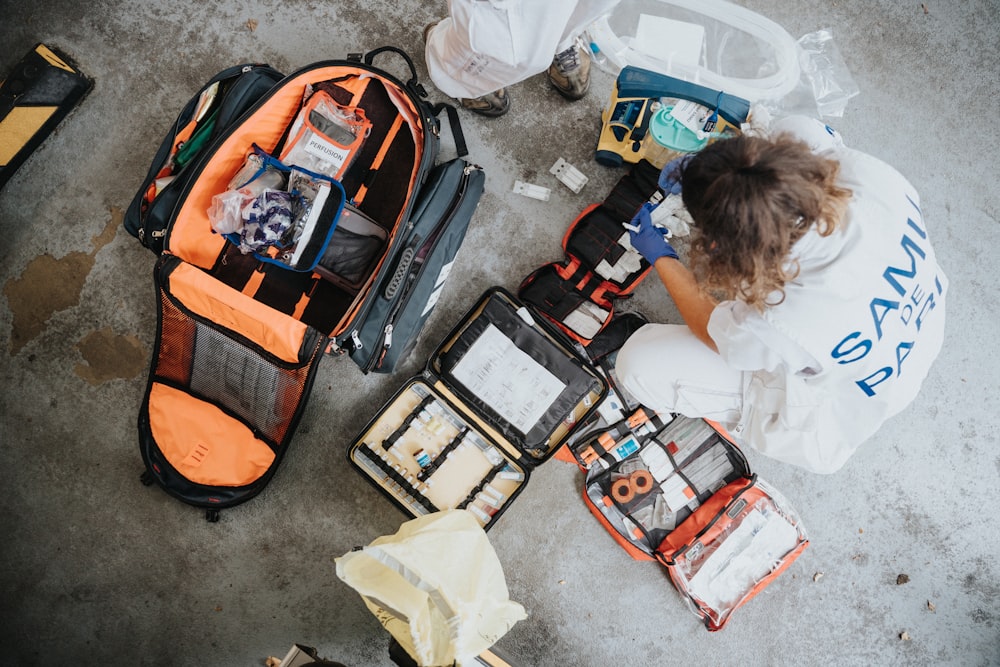Around 475,000 large trucks are involved in accidents each year. Accidents may happen no matter how careful you are. When compared to conventional vehicle incidents, truck accidents are more serious. Because of their sheer size, the collision’s force can inflict severe damage to the cars and life-threatening injuries to the victims.
A collision with a massive commercial vehicle may be terrifying and confusing. Nevertheless, your actions after a truck accident will directly impact your claim and the amount of compensation you may be eligible for.
Knowing what to do after a truck accident will help you save time and money. The following are the steps to take if you are involved in a truck accident.
Seek Medical Attention If You Are Injured
It is critical to get medical help as quickly as possible. You have a responsibility to help people who have been hurt. This involves contacting law enforcement and requesting that emergency medical personnel be dispatched to the spot. When calling 911, be careful to include a detailed description of your injuries as well as the wounds of any other people involved. You are not required to take any measures that might put you at risk or hurt you. Serious injuries will likely prevent you from being able to aid in the event of a truck accident. After being injured and harmed by another, you may be looking for researching injury clinics or a medical professional with years of experience helping patients injured in auto accidents or athletic injuries. You can click on the URL here and know more about it.

Even though you’re not in pain at the time, consult a doctor as soon as possible after leaving the scene. Internal bleeding, for example, is an invisible but dangerous condition that can be identified with tests.
It has the potential to save your life. In a personal injury case, obtaining medical attention also helps to demonstrate that you took steps to avoid future harm. It also shows that your injuries were caused by the truck collision rather than a previous occurrence.
Collect Accident Evidence
Collect as much information as you can from the scene of the crash. Make a note of the date and time. Take photos of the damage to all of the automobiles involved. Take pictures of the license plates, vehicle brands and models, and any corporate insignia that the trucker works for.
It is also important to have photos showing the road’s condition. It is a good idea to take pictures of potholes, skid marks, and weather conditions when the accident occurred.
Some injuries may not be apparent. Nevertheless, take images of any physical evidence of harm at the scene and in the days to come if there is any. Your injury lawyer will use this evidence to prove the other party’s negligence.
You and the truck driver are required by law to exchange information. Get the driver’s name, date of birth, license number, and plate number.
A good lawyer will help you make sense of all the evidence you collect. That’s why it’s essential only to retain the best. In the event of a truck accident, you can hire our Atlanta truck accident attorneys to represent your injury claim and help you secure a win.
Speak With Witnesses
Nowadays, everything seems to be captured on video. The truth is that many accidents happen when there are no security cameras to capture the moment. Witnesses can offer crucial information in determining who is to blame for a truck collision. Witnesses, unlike the drivers, have no stake in the case’s outcome.
It’s more probable that their observations will be seen as neutral. Witnesses also have a unique viewpoint on the incidents. There’s a significant likelihood they picked up on things that led to the incident that the occupants couldn’t see.
Begin by asking an open-ended inquiry about what occurred. Then, to fill up the blanks, ask specific questions.
Written notes will be less precise and thorough than a clear audio or video capture of their statements. However, it doesn’t harm to get both if at all feasible.
Gather Witness Contact Information
Your injury attorney will conduct research and investigation to obtain further evidence, such as documents from the trucking company. As the inquiry into the truck accident progresses, you or your lawyer may have critical follow-up questions.
Gather the names and phone numbers of all the witnesses you’ve talked with. This includes the names and phone numbers of drivers or passengers in the other cars involved.
Don’t Sign Anything or Give a Statement to Insurance Companies.
The primary goal of an insurance firm is to make and maintain as much money as possible. That implies they’ll take steps to undermine your claim’s credibility. Insurance companies will try to get you to make comments that would harm your case if given a chance. Anything you say to them can be used to lower the value of your claim or dismiss it entirely.
In some states, insurance agents don’t need your consent to record conversations. This allows insurance companies to limit you to a single account of your accident. Companies can use this to dismiss any subsequent witness testimony or things you remember later when you aren’t under duress.
Your attorney will be able to negotiate with the insurance company on your behalf, avoiding these nefarious practices.
Conclusion
This guide should potentially give you a decent understanding of what to do in the event of a truck collision. These measures will assist you in gathering information and safeguarding your interests.
Following the guide can provide your personal injury lawyer with the resources and tools needed to represent you and obtain maximum compensation.
